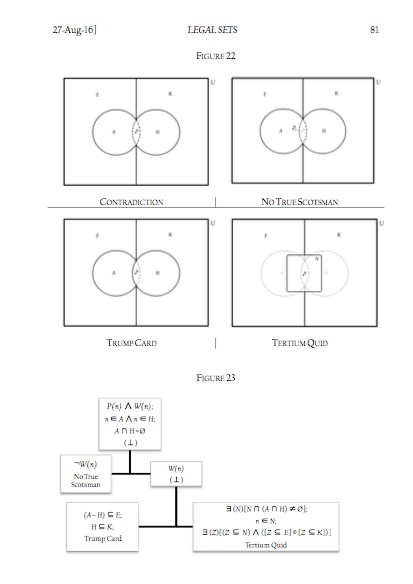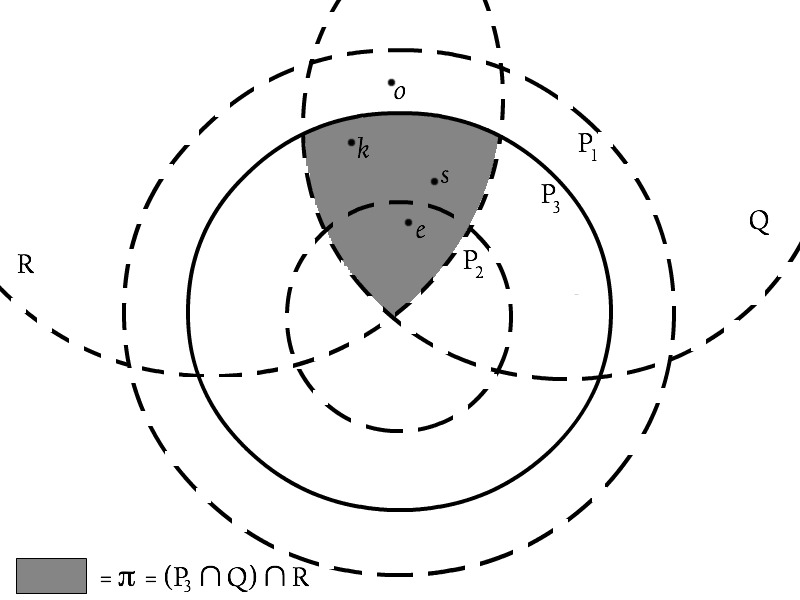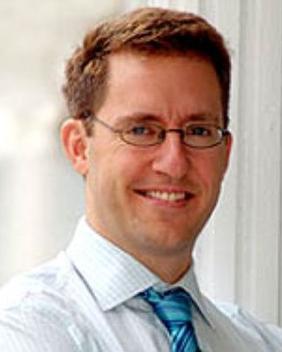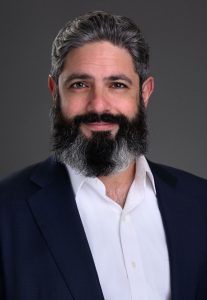A little over a year ago, I was noodling over a persistent doctrinal puzzle in trademark law, and I started trying to formulate a systematic approach to the problem. The system quickly became bigger than the problem it was trying to solve, and because of the luxuries of tenure, I’ve been able to spend much of the past year chasing it down a very deep rabbit hole. Now I’m back, and I’ve brought with me what I hope is a useful way of thinking about law as a general matter. I call it “Legal Sets,” and it’s my first contribution to general legal theory. Here’s the abstract:
In this Article I propose that legal reasoning and analysis are best understood as being primarily concerned, not with rules or propositions, but with sets. The distinction is important to the work of lawyers, judges, and legal scholars, but is not currently well understood. This Article develops a formal model of the role of sets in a common-law system defined by a recursive relationship between cases and rules. In doing so it demonstrates how conceiving of legal doctrines as a universe of discourse comprising (sometimes nested or overlapping) sets of cases can clarify the logical structure of many so-called “hard cases,” and help organize the available options for resolving them according to their form. This set-theoretic model can also help to cut through ambiguities and clarify debates in other areas of legal theory—such as in the distinction between rules and standards, in the study of interpretation, and in the theory of precedent. Finally, it suggests that recurring substantive concerns in legal theory—particularly the problem of discretion—are actually emergent structural properties of a system that is composed of “sets all the way down.”
And the link: http://ssrn.com/abstract=2830918
And a taste of what’s inside:

I’ll be grateful for comments, suggestions, and critiques from anyone with the patience to read the draft.




